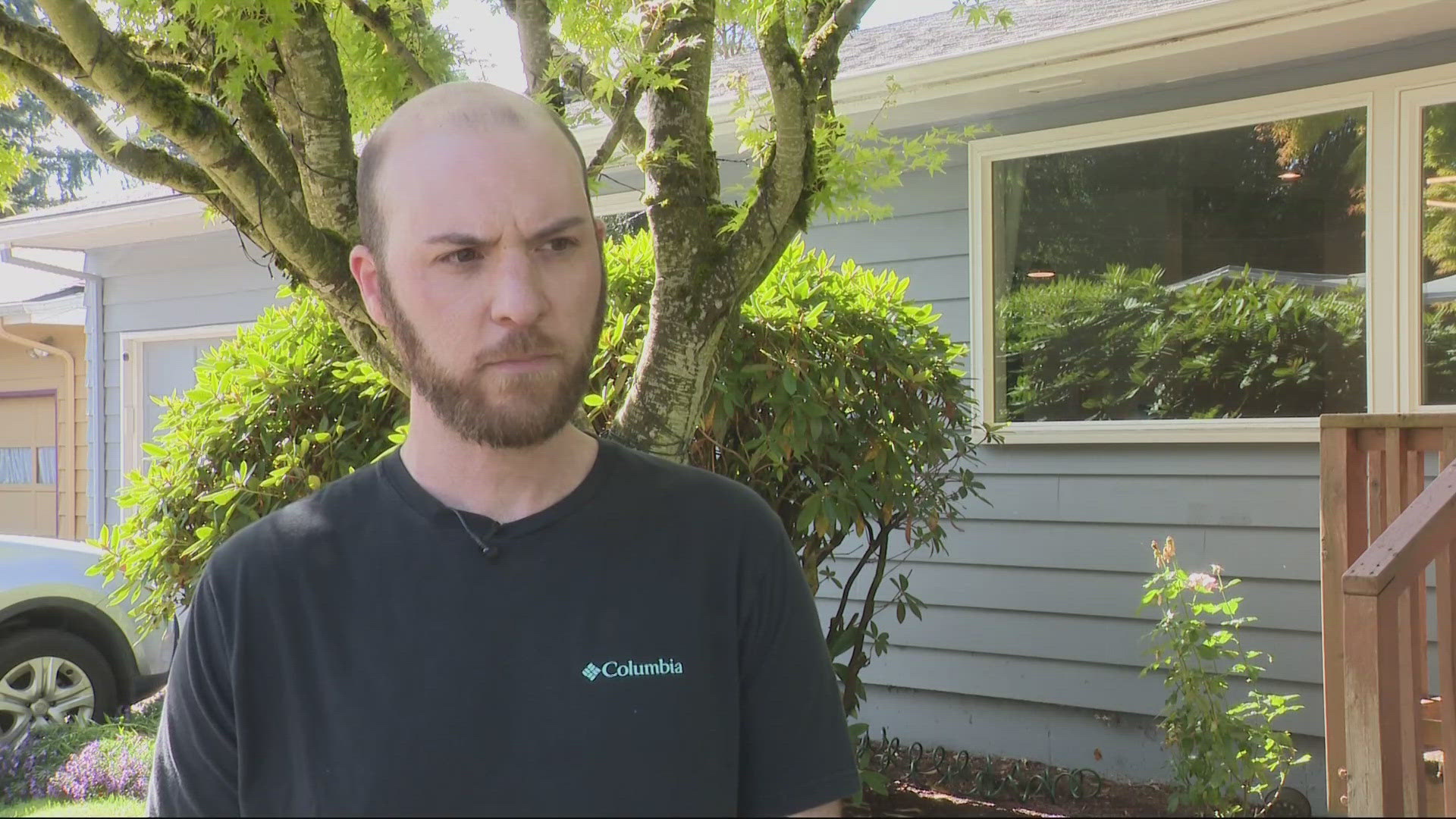PORTLAND, Ore. — Eight months ago, Southwest Portland homeowner Jeramy Peters received a letter from the city, saying Peters was responsible for removing a tree whose roots had damaged the sidewalk.
The tree is on city property and more than 30 feet away from his home. Under current city code, that means it’s the responsibility of the closest property owner to remove it, which the city said, in this case, was Peters’ — and that it would cost him about $5,000.
“That’s a huge amount of money… I don’t see how we are responsible, and I don’t understand why the city wouldn’t step up and just take care of a problem,” said Peters.
Over the next several months, Peters spent $3,000 removing the damaged sidewalk, along with numerous inspections, before calling for help.
“At that point, we said, 'Forget it,' and we called the Ombudsman to see what we could figure out because it was getting ridiculous,” said Peters.
The Portland City Ombudsman's office recently released a report calling on the city to foot the bill.
“I find it very concerning that the city has not jumped to take this responsibility,” said Andy Stevens, the city’s deputy Ombudsman’s director.
The report shows that the city of Portland paid $15,000 to remove a tree outside the Portland Art Museum. It was mainly on private property, except for 6 inches that grew onto the public right of way, raising concerns over the fairness of these city codes.
A spokesperson for Portland Parks and Recreation told KGW the tree outside the museum was considered a “heritage tree,” which the city is responsible for — and different from the one in southwest Portland, which is considered a “street tree.”
"Heritage Trees are recognized for their unique significance and have special rules requiring the City to take care of them when they extend onto City property, like the American Elm Heritage Tree example used in the City Auditor’s report. However, the tree at the SW Portland location is not a Heritage Tree — it’s a street tree, and the responsibility for its care falls to the adjacent property owner, according to City code," Portland Parks and Recreation explained in an email.
But the city ombudsman and Peters object.
“Our office really considers this fundamentally unfair, these two different situations… I think it's people’s expectations on what they can expect with the city. They want the rules to be written clearly, so they have an understanding for what they’re responsible for,” said Stevens.
“Like, come on — I can’t get any help, and you can’t just do what you need to do, city,” added Peters.
The city’s Parks and Recreation department admits rules around trees and who is responsible for them are complex, and they are hoping to make changes to city code to minimize the impact on property owners, a move KGW is told Mayor Ted Wheeler supports.

